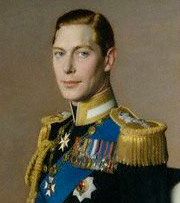The King’s Speech is Not Just About Stuttering
Over the weekend I went to see the King’s Speech. So far the film, featuring Colin Firth as a soon-to-be-King-of-England with a speech impediment, and Geoffrey Rush as his ill-credentialed but trusted speech therapist, has earned top critics’ awards and 12 Oscar nominations. This is a movie that’s hard not to like for one reason or another, at least most of the way through. It uplifts; it draws on history; it depends on solid acting.
What I liked best, though, is the work’s rare depiction of a complex relationship between two imperfect, brave and dedicated men. At some level, this is a movie about guys who communicate without fixating on cars, football (either kind) or women’s physical features. Great! and, dear Hollywood moguls, can we have some more like this, please?
The film’s medical aspects are four, at least: the stuttering, the attitude of physicians toward smoking, a closeted sibling who had epilepsy and died at an early age – just mentioned in passing, and, finally, the king’s trusted practitioner’s lack of credentials.

At the start, Prince Albert (young King George VI) has a severe speech impediment. It’s said that he stutters, and on film Firth does so in an embarrassingly, seemingly extreme and compromising degree. He’s the second of George V‘s sons, and might or might not succeed to the throne depending on events in history, his older brother’s behavior, and his capacity to serve the Empire at the brink of war. Being effective as King of England in 1936, and especially at the start of war in 1939, entails speaking confidently.
Prince Albert’s been through the mill with doctors who’ve tried to help him talk. Some recommend he smoke cigarettes; these, they advise, would help him to relax and, they say, is good for the nerves. One asks him to speak with a mouthful of marbles, on which this doctor watching the film worried he might choke. Eventually Albert’s wife, Elizabeth (Queen Mother to be), finds a speech therapist in London, Lionel Logue, who uses unorthodox approaches with, by rumor, exceptional results. Eventually Prince Albert – or “Bertie” as the therapist insists on calling him – trusts and accepts help from this peculiar Australian who, it turns out, developed his methods of assisting stutterers through his work with shell-shocked soldiers in WWI.
According to MedlinePlus, stuttering affects as many as 1 in 20 children, with typical onset before the age of 5. The problem can persist for weeks or years, of manifold causes. Some families are disproportionately affected, but there’s no known genetic cause. Stuttering can arise upon emotional trauma. It’s more common in boys than in girls.
As for doctors recommending cigarettes, the concept is familiar from some old literature regarding schizophrenia. In a recent post, I included a curious TV ad featuring doctors smoking Camels. I don’t have a good sense of just how comfortable most physicians were with smoking prior to 1950, and would like to know more. Did they have their suspicions?
Finally, on the relationship between the king-to-be and Mr. Logue, it’s fascinating: Prince Albert prefers to call his therapist “doctor,” but Logue is adamant that they refer each to the other on a first-name basis. Well into the film, we learn that Logue hasn’t ever attended speech therapy school, or medical school, or whatever it is that someone who treats another person in London circa 1930 should have completed before providing quasi-medical, essentially psychological care as he did to his royal highness. Nonetheless, the king trusts Logue more than any suitably-credentialed therapist recruited by his staff. This topic – of the therapeutic relationship, trust and expectations – warrants separate attention.
Meanwhile, I hope you have the chance to see this movie, if you haven’t already. The Oscars are scheduled for February 27, just two weeks away.
—
Loved this post Elaine! I can’t wait to go see the movie. Maybe you could start a new feature, The Physician’s Guide to Moviegoing.
Next review: the depiction of drug addiction in The Fighter?
Jamie
Thanks Jamie,
I haven’t seen “The Fighter” yet, but should soon. Stay tuned!